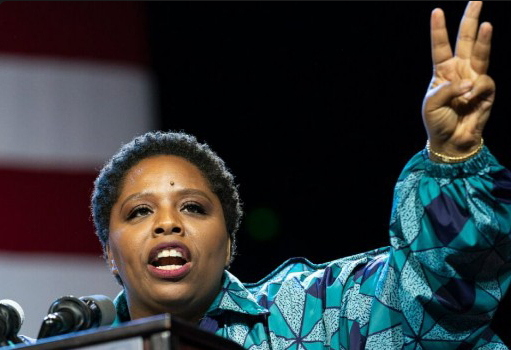
On Feb. 26, 2012, a 17-year old African-American was shot to death in Sanford, Florida, triggering a wave of civil rights activism. Armed with a can of pop and a bag of Skittles, Trayvon Martin was gunned down by George Zimmerman, a Neighbourhood Watch volunteer who claimed he felt threatened by the unarmed teenager. Following Zimmerman’s acquittal, thousands of Americans protested the injustice. Although social activism was already prominent in the African-American community, this event propelled it onto the world stage. From there, the Black Lives Matter movement was born.
With each killing of an unarmed black civilian, the movement grew louder. Fast-forward 10 years and BLM, which started as a simple hashtag on Twitter, has evolved into a multi-million-dollar organization.
Whilst the BLM Global Network Foundation has seen much success, rumblings have surfaced of disputes between different chapters of the organization. BLM10, a break-away chapter, explained in a 2020 open letter that attempts at seeking transparency about BLM financial activities had failed.
Recently released IRS tax documents provide one of the first clear looks at the organization’s financial activities, including real estate purchases in Canada.
According to the documents, a Los Angeles-based company owned by Damon Turner was paid US$969,459 for “live production, design and media.” Turner is the father of BLM co-founder Patrisse Cullors’s child.
This is roughly five times the amount that was granted in 2021 to the Trayvon Martin Foundation set up by Martin’s parents following his killing to “provide emotional and financial support to families who have lost a child to gun violence.” They received US$200,000 in donations from BLM.
Paul Cullors, brother of the co-founder, received a large sum of US$840,000 for providing security services to the organization.
The organization also purchased a property in Toronto for US$6.3 million as part of an “out of country” grant. They claimed to be using the mansion, now called the Wildseed Centre for Art and Activism, as their main headquarters in Canada.
An audited financial statement obtained by the Washington Examiner revealed that for this purchase, BLM Global Network Foundation transferred US$8 million to M4BJ, a Toronto-based non-profit founded by Cullors’ wife, Janaya Khan, who is the co-founder of BLM Toronto.
The tax filings stated that for the fiscal year ending June 30, 2021, BLM collected US$76.9 million in contributions and grants with expenditures totalling US$37.7 million. It also revealed net assets worth US$42 million.
The documents indicated that Cullors received no compensation and “served as an unpaid volunteer. On May 27, 2021, Cullors resigned following a New York Post reported that she “went on a real estate buying binge, snagging four high-end homes for $3.2 million in the U.S. alone.”
The Post report left some, like Michael Brown Sr., who started a foundation in honour of his son, soured on the organization. Brown Sr. lost his son Michael in 2014, when he was shot with six bullets by a police officer in Ferguson, Missouri.
“I just feel like all these organizations that were made after someone had lost their loved one,” Brown Sr. told The New York Times. “And they see that these parents are coming up with organizations already. They should be able to get on board and support these families that’s going through this.”
Cullors was the foundation board’s sole voting director according to the tax documents. In a recent AP News interview, she described the BLM experience as “building a plane while flying it.” Since her departure, BLM has introduced new board members.
“No one expected the foundation to grow at this pace and to this scale,” Cicley Gay, chair of the board of directors, said in a statement on Tuesday. “Now, we are taking time to build efficient infrastructure to run the largest Black, abolitionist, philanthropic organization to ever exist in the United States.”
The release of the tax filings was the first time the tax-exempt non profit organization offered an official accounting of its finances.
* Article from: nationalpost.com


